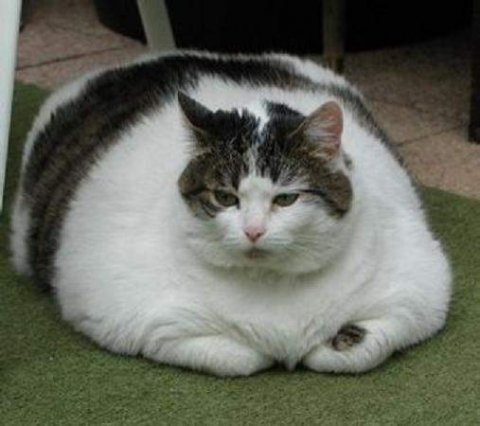
Companion Animal Weight Loss Programs
By: Elizabeth Galligan, RVT, Veterinary Health Center at Kansas State University
As veterinary professionals, we care passionately about our patients and clients. Patients who are overweight are a concern for small animal veterinary teams. Providing clients with resources and support often means the difference between successful weight loss in pets and an ever increasing Body Condition Score (BCS).

The process begins with the veterinarian’s diagnosis that a pet is overweight. There are two commonly used BCS systems to assist with this evaluation. Using the 5-point system (1 = extremely thin and 5 = extremely obese), 3 is an ideal BCS, with each point over 3 equaling 20% excess weight. Using a 9 point system, 4-5 is the ideal BCS, with each point greater than 5 equaling 10% excess weight. Ideal weight can be roughly calculated using either of these BCS systems.
With a diet recommendation, the veterinary technician can calculate the pet’s daily caloric intake to achieve weight loss. This caloric calculation is a rough estimate of the pet’s needs; the actual amount fed may need to be altered in relation to each individual pet as weight loss is monitored over time.
With a diet recommendation, the veterinary technician can calculate the pet’s daily caloric intake to achieve weight loss. This caloric calculation is a rough estimate of the pet’s needs; the actual amount fed may need to be altered in relation to each individual pet as weight loss is monitored over time.
- Educating the client on evaluating their pet’s BCS and weight loss benefits.
- Providing a measuring cup marked to show the amount to feed.
- Troubleshooting feeding and exercise recommendations.
- Providing the owner with a list of pet weight loss resources, diet friendly treats, and exercise options tailored to the pet.
- Calling a client within 2 weeks of initial visit to see how pet and client are adapting.
- Monthly weigh-ins and BCS assessments with re-calculation of daily caloric intake as needed.
Free BCS sheets and feeding cups are available through many premier pet food companies including Purina™, Hill’s™, Iams™, Eukanuba™, and Royal Canin™. Talk to your clinic representative for more information. The websites for these companies also provide nutrition, health, and lifestyle information for owners. Nutrition based CE for veterinary team members may also be available.
You can develop weight loss packages offered by your clinic. The service can include regular weight monitoring, in-clinic counseling, exercise groups and support groups. This will provide a team approach to weight loss/weight control. Building a weight loss program for your clinic can be very rewarding for you as well as your clients and patients. When patients maintain an ideal BCS throughout their lives, everyone wins. Allow your passion for pets to help your patients live happier, longer lives.
Elizabeth Galligan received her BA in English Literature from the University of the South in 1996 and an AAS in Veterinary Technology from Nebraska College of Technical Agriculture in 2000. Galligan has been with the Veterinary Health Center at Kansas State University since April of 2002 in the Small Animal General Medicine department.